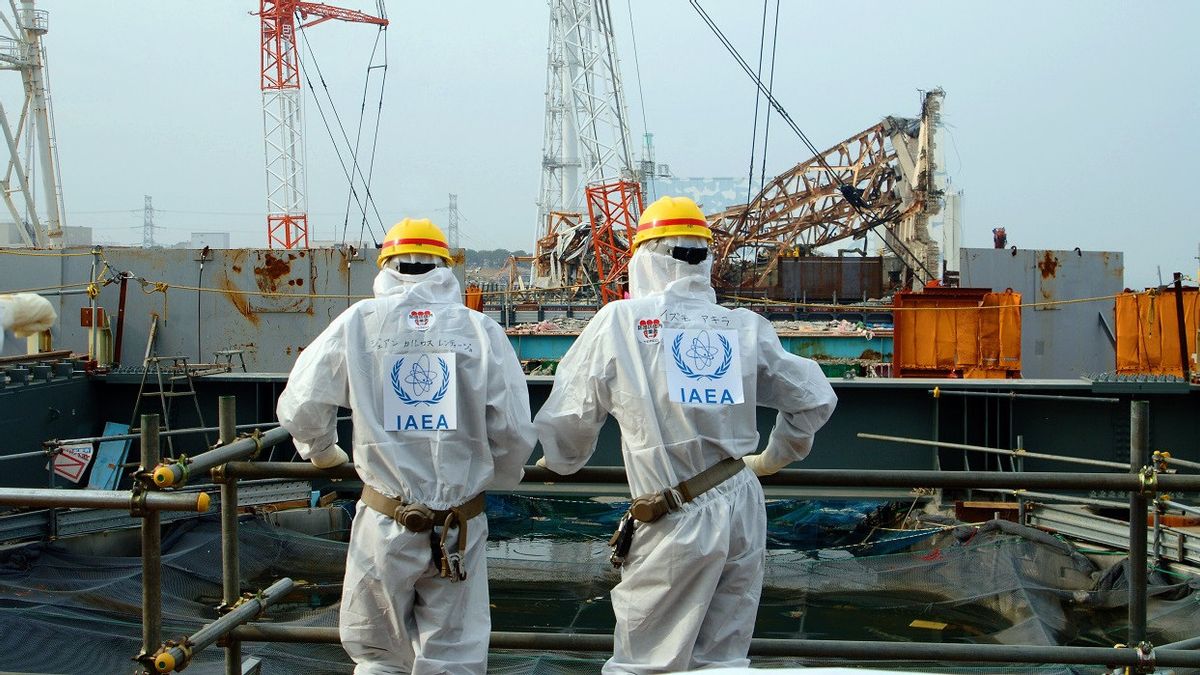JAKARTA - The Japanese government and the International Atomic Energy Agency (IAEA) have agreed to cooperate to monitor the radioactive water disposal plan, which is processed by Japan from the Fukushima nuclear power plant, into the sea, Thursday, July 8 local time.
According to Kyodo News, Japan sees the involvement of the UN nuclear watchdog as important from the point of view of ensuring credibility and transparency in the monitoring process, the Japanese Ministry of Foreign Affairs said.
Considered to have an important meaning, this monitoring cooperation agreement was established in the midst of opposition and concern from Japan's neighboring countries, regarding the discharge of treated water into the Pacific Ocean.
"Under the agreement, Japan and the IAEA will cooperate in reviewing the safety and regulations of the discharge of water as well as in evaluating the effects of the release to the sea," the ministry said.
Later, there will be a task force set up at the IAEA secretariat to provide support, including a group of internationally recognized experts, selected by the agency from its member states, according to the ministry.

Previously, the Japanese government in April decided to release the water that had accumulated at the Fukushima plant after passing through the treatment plant, due to the destruction of the plant core due to the earthquake and tsunami in March 2011 ago.
Water pumped into the damaged reactor at the Fukushima Daiichi plant to cool the melted fuel, mixed with rain and groundwater, is treated using an advanced liquid processing system.
The process removes most of the radioactive material except for tritium, which is said to pose little health risk in low concentrations.
In April, the Director General of the International Atomic Energy Agency (IAEA) Rafael Mariano Grossi hoped that South Korean nuclear experts would participate in the monitoring of the UN nuclear watchdog regarding the planned release of radioactive water from the Fukushima Nuclear Power Plant (NPP) by Japan.
This was conveyed in an interview with the Yonhap News Agency, related to South Korea's involvement in the IAEA verification team, amid increasing concerns because the radioactive water that Japan will dump into the Pacific Ocean contains Tritium.

"I hope so. There is a lot of talent in your country, especially in this area, where South Korea is one of the leading countries in the world, in the fields of nuclear energy, nuclear science and nuclear technology," Grossi said. April.
"I am sure it will include a rich and strong team. The collaboration of experts from your country will be invaluable," Grossi added, adding that he would inform Seoul.
Grossi emphasized that as an international technical body, his organization does not side with anyone in the issue of releasing radioactive water from Fukushima.
"Our mission is, to ensure, to certify all operations before, during implementation and after assessment, in line with internationally recognized standards."
The English, Chinese, Japanese, Arabic, and French versions are automatically generated by the AI. So there may still be inaccuracies in translating, please always see Indonesian as our main language. (system supported by DigitalSiber.id)








